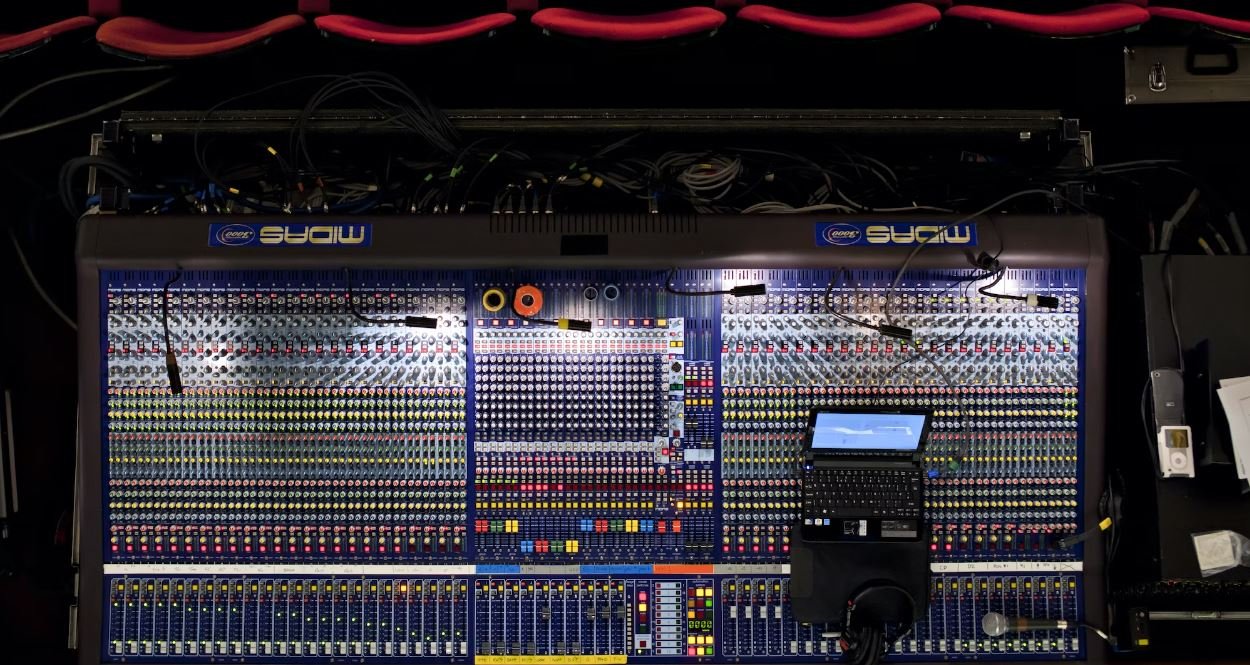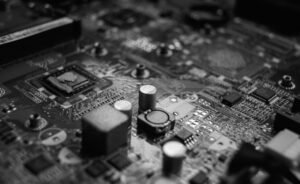Can AI Write Code?
Artificial Intelligence (AI) has rapidly advanced in recent years, enabling machines to perform complex tasks, from image recognition to natural language processing. As AI continues to evolve, one question arises: Can AI write code?
Key Takeaways:
- AI is being developed to write code, but it is still in its early stages.
- AI can assist developers by automating repetitive tasks and suggesting code snippets.
- AI-generated code may lack human intuition and creativity.
While AI is being developed to write code, it is important to understand the current capabilities and limitations of AI in this aspect. **AI can assist developers by automating repetitive tasks and suggesting code snippets**, but it is not yet capable of completely replacing human programmers. *The collaboration between humans and AI in coding shows promising potential for enhancing productivity and speeding up development processes*.
AI Writing Code: The Current Landscape
AI-powered code generation tools are emerging, aiming to streamline the development process. These tools utilize machine learning algorithms to analyze existing code libraries, identify patterns, and generate code based on the given problem statement. However, the quality and accuracy of the generated code can vary, as AI lacks human intuition and understanding of real-world nuances. Developers still play a critical role in reviewing and refining the output of AI-generated code.
Despite the limitations, AI is transforming software development in various ways. Below are three areas where AI is making an impact:
- **Automated Bug Fixes**: AI can analyze code repositories and detect patterns of common bugs, allowing developers to address potential issues before they occur.
- **Code Completion**: AI-powered code editors can suggest code snippets and autocomplete functionality, speeding up the coding process.
- **Code Refactoring**: AI can analyze and optimize existing code, making it more efficient and maintainable.
AI vs. Human Coders: The Pros and Cons
AI-generated code has its advantages and disadvantages compared to code written by human programmers:
| AI-generated Code | Human-written Code |
|---|---|
|
|
Despite the advantages of AI-generated code, **human-written code still possesses the creativity and adaptability that AI cannot yet replicate**. While AI can automate certain tasks and assist in writing code, it is unlikely to completely replace human programmers anytime soon.
The Future of AI in Coding
The future of AI in coding holds great promise. With advancements in machine learning and natural language processing, we can expect AI to become more proficient in understanding and generating code. However, the collaboration between humans and AI is crucial in achieving the best outcomes. By leveraging the strengths of both AI and human programmers, we can enhance productivity and drive innovation in the software development industry.
As AI continues to evolve, we can anticipate further advancements in AI-generated code, but it will remain vital for developers to adapt and upskill to remain relevant in this changing landscape.

Common Misconceptions
AI’s Ability to Write Code
There are several common misconceptions surrounding the topic of whether AI can write code. Let’s address some of them:
- AI can generate complete, bug-free code instantly.
- AI will replace human programmers in the near future.
- AI coding abilities are equal to expert human developers.
Instant Code Generation
Many people believe that AI can generate complete, bug-free code instantly, eliminating the need for human programmers. However, this is not entirely true.
- AI code generation is limited to specific use cases and predefined patterns.
- AI-generated code still requires human review and debugging.
- AI tools are not capable of understanding complex requirements or interpreting user intent accurately.
Replacing Human Programmers
Sometimes it is believed that AI will replace human programmers entirely, rendering their skills and expertise obsolete. However, this is an overstatement of AI capabilities.
- AI is best utilized as a coding assistant, enhancing the productivity of programmers rather than replacing them.
- Human programmers bring creativity, problem-solving, and critical thinking abilities that AI lacks.
- AI can automate repetitive tasks, enabling programmers to focus on more complex and innovative challenges.
AI vs. Human Developers
Another misconception is that AI coding abilities are equivalent to those of expert human developers. While AI has made advancements, it is still far from matching human expertise.
- AI tools lack a deep understanding of business logic and domain-specific knowledge.
- Human developers possess context and intuition, which AI algorithms struggle to replicate.
- A combination of AI and human collaboration yields the best results in terms of code quality and functionality.
Conclusion
It is important to dispel common misconceptions about AI’s ability to write code. While AI has made significant strides, it is not a foolproof replacement for human programmers. AI can assist and augment the work of developers, but it cannot fully substitute their knowledge, experience, and creativity.

AI Development Timeline
This table provides a chronological overview of significant milestones in the development of artificial intelligence (AI) technology. From its humble beginnings to recent breakthroughs, AI has come a long way.
| Year | Event |
|---|---|
| 1956 | The Dartmouth Conference marks the birth of AI as a field of study. |
| 1966 | The invention of the ALVINN (Autonomous Land Vehicle In a Neural Network) system, a precursor to autonomous driving technology. |
| 1997 | IBM’s Deep Blue defeats World Chess Champion Garry Kasparov. |
| 2011 | IBM’s Watson defeats human contestants on the quiz show Jeopardy!. |
| 2014 | Google’s DeepMind AI defeats a professional Go player, a significant milestone in complex strategic gameplay. |
| 2016 | AlphaGo defeats world champion Lee Sedol, demonstrating AI’s capabilities in the ancient game of Go. |
| 2017 | OpenAI’s bot beats top players at Dota 2, a complex multiplayer online battle arena game. |
| 2018 | AI-powered robotic arm successfully assembles IKEA furniture, showcasing advanced grasping and manipulation skills. |
| 2019 | OpenAI’s GPT-2 generates highly coherent and human-like text, raising concerns about potential misuse. |
| 2021 | GPT-3, an even more advanced language model, demonstrates improved natural language understanding and generation abilities. |
Comparison of Human and AI Coders
This table demonstrates a comparison between human coders and AI systems in terms of certain attributes. While AI has made significant progress, humans still possess unique qualities that make them invaluable in the coding world.
| Attribute | Human Coders | AI Systems |
|---|---|---|
| Experience | Years of practical coding experience and accumulated knowledge. | Can analyze vast amounts of code and learn from it, rapidly improving their abilities. |
| Creativity | Can think outside the box, develop innovative solutions, and approach problems from different angles. | Can generate code based on patterns and examples, but lacks originality. |
| Contextual Understanding | Can grasp the broader goals and purposes behind code development, considering user needs and business contexts. | Relies on specific training data and lacks inherent understanding beyond that scope. |
| Adaptability | Can adapt to new programming languages, frameworks, and emerging technologies. | AI systems require training specific to each language or framework. |
| Error Handling | Can identify and correct errors, applying debugging techniques based on troubleshooting skills. | AI systems can struggle with debugging complex issues, often requiring human intervention. |
AI Language Models
This table explores various AI language models and their capabilities, ranging from text completion to natural language understanding.
| Language Model | Company/Research Group | Notable Features |
|---|---|---|
| GPT-3 | OpenAI | Powerful text generation, translation, question-answering, and summarization abilities. |
| BERT | Google AI | Deep contextual representations, enabling language understanding and sentiment analysis. |
| XLNet | Carnegie Mellon University and Google AI | Addresses limitations of previous models through better encoding of dependencies. |
| GPT-2 | OpenAI | Highly coherent text generation, demonstrating creative writing capabilities. |
| T5 | Google Research | Unified framework for performing various natural language processing tasks. |
Distribution of AI Skills
This table showcases the distribution of AI skills across different countries. As AI continues to evolve, expertise in this field becomes increasingly valuable and sought after, shaping regional development.
| Country | AI Talent Pool (Number of Professionals) | Major AI Research Institutions |
|---|---|---|
| United States | 350,000+ | Stanford AI Lab, MIT Computer Science and AI Laboratory (CSAIL), Google Brain |
| China | 200,000+ | Tsinghua University, Peking University, Baidu Research |
| United Kingdom | 60,000+ | University of Cambridge, University of Oxford, DeepMind |
| Canada | 40,000+ | University of Toronto, MILA, Alberta Machine Intelligence Institute |
| Germany | 30,000+ | TU Munich, Fraunhofer Society, Max Planck Institute for Intelligent Systems |
Impacts of AI in Industries
This table highlights the transformative impacts of AI technologies across various industries, revolutionizing processes and unlocking new possibilities.
| Industry | AI Application/Use Case | Benefits |
|---|---|---|
| Healthcare | Medical image analysis for disease diagnosis and prediction. | Improved accuracy, faster diagnosis, and personalized treatment options. |
| E-commerce | Recommendation systems and personalized shopping experiences. | Enhanced customer satisfaction, increased sales, and targeted marketing. |
| Finance | Predictive analytics for fraud detection and algorithmic trading. | Reduced financial risks, improved security, and optimized investment strategies. |
| Transportation | Autonomous vehicles and traffic optimization systems. | Enhanced safety, reduced congestion, and increased efficiency. |
| Manufacturing | AI-powered robotics and automation for improved production processes. | Increased productivity, cost reduction, and higher product quality. |
Popular AI Programming Languages
This table presents some of the most popular programming languages used in AI development. Developers utilize these languages to harness the power of AI and build innovative applications.
| Language | Key Features | Domains of Use |
|---|---|---|
| Python | Simplicity, extensive libraries (e.g., TensorFlow, PyTorch), and readability. | Data analysis, machine learning, natural language processing. |
| R | Statistical analysis, data visualization, and comprehensive libraries. | Statistical modeling, data mining, and bioinformatics. |
| Java | Portability, scalability, and widespread adoption. | AI in enterprise applications, Android app development. |
| C++ | Efficiency, high performance, and lower-level control. | Resource-intensive algorithms, game development, robotics. |
| Julia | High-level, performance-oriented, and flexible language. | Scientific computing, machine learning, and numerical analysis. |
Ethical Considerations in AI
This table outlines the ethical considerations surrounding the development and deployment of AI, emphasizing the need for responsible practices.
| Ethical Consideration | Description |
|---|---|
| Privacy | Protecting individuals’ personal information and ensuring responsible data handling. |
| Bias and Fairness | Avoiding discrimination, ensuring AI systems treat all individuals fairly and impartially. |
| Transparency | Understanding how AI systems make decisions and ensuring they can be explained. |
| Accountability | Evaluating the responsibility and liability of AI developers and users for outcomes. |
| Social Impact | Considering the wider societal effects of AI, such as job displacement and inequality. |
AI vs. Human Jobs
This table contrasts the capabilities of AI systems and human workers in various job domains. While AI can automate certain tasks, human skills such as empathy and creativity remain essential.
| Job Domain | AI Automation Potential | Human Skills |
|---|---|---|
| Data Entry | High | Complex problem-solving, critical thinking, and decision-making. |
| Customer Service | Moderate | Empathy, interpersonal communication, and emotional intelligence. |
| Legal Research | High | Legal expertise, interpretation of complex regulations, and negotiation skills. |
| Creative Writing | Low | Creativity, originality, storytelling, and literary intuition. |
| Strategic Planning | Moderate | Visionary thinking, long-term planning, and adaptation to dynamic environments. |
Conclusion
The tables presented in this article shed light on the remarkable progress made in AI technology, ranging from its development timeline to its impacts on various industries. While AI systems have achieved impressive feats, human coders still possess distinct qualities that make them indispensable. The rise of AI calls for continued ethical considerations and responsible practices to ensure its benefits are harnessed while mitigating potential risks. AI is an ever-evolving field, and further advances are expected to shape the future in novel and groundbreaking ways.
Can AI Write Code? – Frequently Asked Questions
Q: What is AI programming?
A: AI programming refers to the development of algorithms and techniques that enable computers or machines to simulate human intelligence and perform tasks historically done by humans.
Q: Can AI write code on its own?
A: Yes, AI can generate code through techniques like automated code generation, machine learning, and natural language processing. However, the quality and accuracy of the generated code may vary.
Q: How does AI write code?
A: AI can write code by learning from existing codebases, analyzing patterns, and using predefined rules. It can also generate code by translating high-level specifications into executable code using natural language processing techniques.
Q: Can AI replace human programmers?
A: While AI can automate certain coding tasks and assist programmers, it is unlikely to completely replace human programmers. AI still requires human guidance, creativity, and critical thinking to align code with specific business requirements and solve complex problems.
Q: Are AI-generated codes reliable?
A: The reliability of AI-generated code depends on many factors such as the training data, algorithms, and testing processes. While AI can generate functional code, there may be cases where manual intervention is required to ensure code quality, maintainability, and security.
Q: Can AI learn from existing codebases?
A: Yes, AI algorithms can be trained using existing codebases to learn coding patterns, identify bugs, and suggest improvements. By analyzing large amounts of code, AI can gain insights to assist programmers in their daily tasks.
Q: What are the benefits of AI-generated code?
A: AI-generated code can help programmers to automate repetitive tasks, reduce development time, and improve productivity. It can also assist in identifying errors, refactoring code, and improving code readability.
Q: Can AI adapt to different programming languages?
A: Yes, AI can adapt to different programming languages through language-specific models and training. With appropriate training, AI can understand syntax and idiomatic patterns of various languages to generate code in a specific programming language.
Q: Is AI capable of understanding complex coding requirements?
A: AI algorithms can understand and process complex coding requirements to some extent. However, it might struggle with highly intricate or ambiguous scenarios that require deep domain knowledge or creative problem-solving skills.
Q: How will AI impact the programming industry?
A: AI has the potential to revolutionize the programming industry by augmenting developer productivity, streamlining code maintenance, and enabling faster software development. However, it is unlikely to replace human programmers but rather work alongside them to enhance their capabilities.




